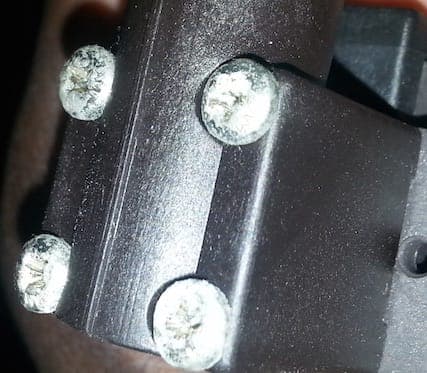
Curated with aloha by
Ted Mooney, P.E. RET

The authoritative public forum
for Metal Finishing 1989-2025

-----
Can Fe/Zn8 zinc thick film passivated screws last in salty coastal environment?
February 3, 2016
Q. We are using Fe/Zn8 thick-film passivation colourless screws along with Plastic housing in our switch gear product
One of our customer who is in the coastal area had stored our product in packed condition in stores for 1 year as stock... When he have opened the packaging of use he has observed white powder type of deposits in the heads of all the screws which is used.
Now he is asking for the reason.
My question is:
a) Does Zinc thickfilm passivation work in Coastal salty environment?
b) What are the other alternatives we can use?
Regards
Designer - Pune, India
A. Hi Manoj. I'm getting a little confused about storage vs. usage conditions...
If these screws are used in, and exposed to, a salty coastal environment, Fe/Zn8 is not adequate. That 8µ thickness is for "moderate" exposure, not "severe" exposure or "very severe" exposure. But perhaps they are used within sealed cabinets?
Protection from white rust in storage, however, is indeed a function of the chromate passivation layer. Thick-film trivalent passivates may differ from thin film trivalent passivates with sealers in various ways, but corrosion resistance was fundamental to the development of both approaches. I would not expect properly dried, properly stored parts to get white rust within a year, but it is obviously difficult to ascertain exactly where the problem lies. I doubt that switching from thick-film passivate to thin-film with sealer would be a good early step though. Are you doing regular salt spray testing and, if so, what results have you been getting? Thanks.
Regards,

Ted Mooney, P.E. RET
Striving to live Aloha
finishing.com - Pine Beach, New Jersey
February 2016
February 4, 2016
Q. Thanks for your quick observations & suggestions.
I am sending the the photo of the screw to you email, the screw is used on thermoplastic housing (which is switch which is used in outdoor applications) the product is IP67 rated.

We actually do salt spray test according to DIN EN 9227
But this is the first time we are facing this problem, the climatic condition of the city is quite harsh
75-95% humidity & 38 °C
Will using a stainless steel screw solve the problem? Or we can use plating itself with some changes?
- Pune, Maharasthra, India
Q, A, or Comment on THIS thread -or- Start a NEW Thread